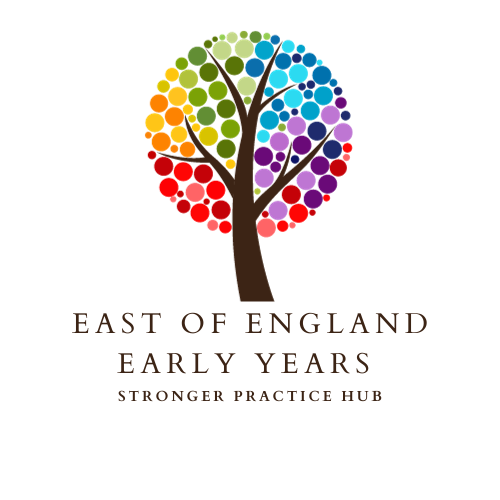Case Study: Cultivating Environmental Sustainability in Early Years Education Through EEF-Informed Practice
This case study examines the implementation of environmental sustainability initiatives within an early years setting, guided by training from the East of England Stronger Practice Hub and aligned with the Education Endowment Foundation (EEF) Evidence Store
The nursery is set in Norwich, with a wide variety of families accessing our provision. We provide care and education for up to 40 children at each session. We employ 21 members of staff, the staff team have qualifications ranging from Level 6 to apprentices studying towards their L3. The setting was seeking to develop children's understanding of their environmental footprint and fostering connections with nature, particularly given its limited natural outdoor space (astroturfed gardens and concrete). However, it benefits from proximity to a forest and a working farm, providing valuable opportunities for nature-based learning. The setting's manager, Alex, sought to enhance staff knowledge and practice in this area, recognising the importance of embedding sustainability into the curriculum.
Engagement:
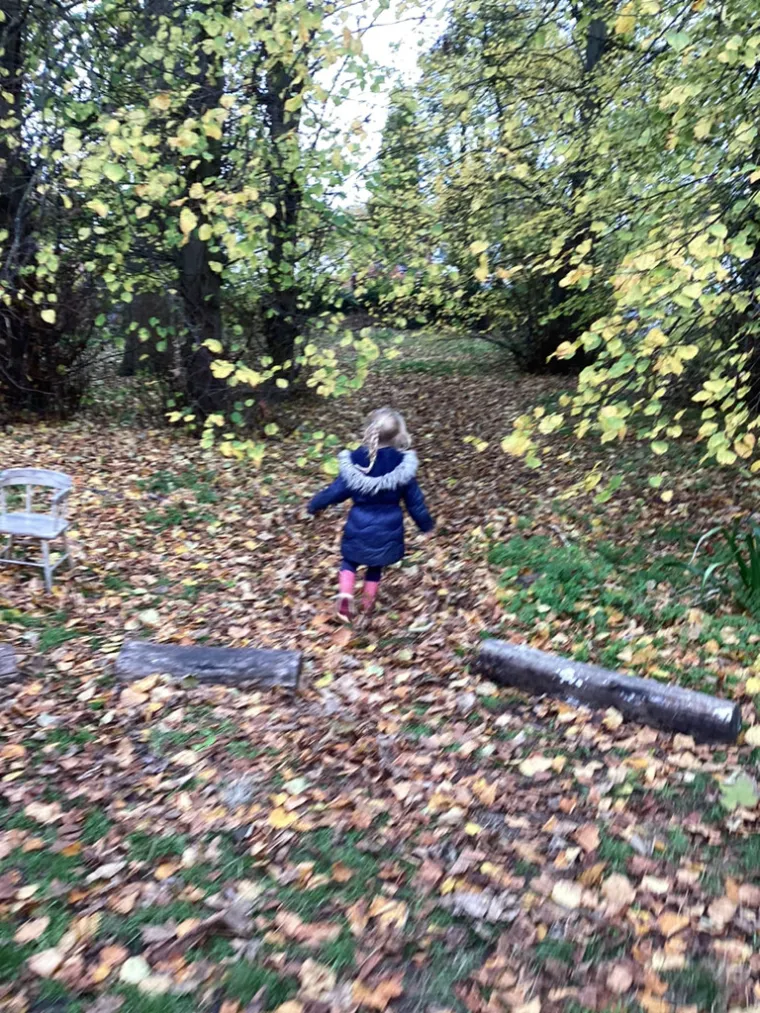
The training provided by the East of England Stronger Practice Hub placed a strong emphasis on current best practices in environmental sustainability education. This training offered practical, implementable ideas that could be applied immediately within the setting. ‘It was absolutely fantastic to learn so much in a creative way that meant I could make practical changes to what we do in setting’. Furthermore, it facilitated the creation of personalised action plans for both the setting as a whole and for individual practitioners, ensuring a tailored approach to implementation.
Relevant books were gifted to each setting, providing valuable resources to support learning. The training also encouraged staff to explore how they could use their existing core books to create connections with environmental sustainability. In addition to these practical elements, the training aimed to encourage the setting to focus on developing children's understanding of their environmental footprint, strengthening children's connections with nature, and integrating sustainability into both daily practice and the curriculum. Finally, the training promoted the adoption of sustainable practices within the setting itself, particularly in areas such as resource use and energy efficiency.
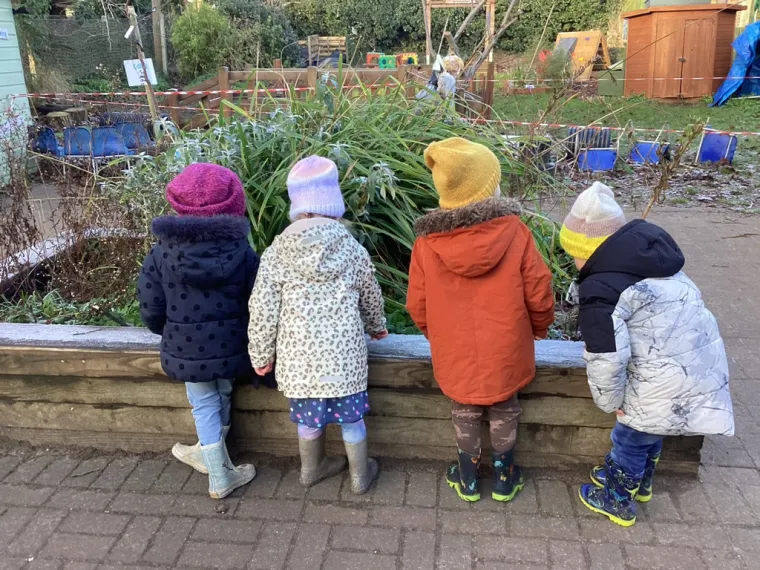
Implementation:
After the training, Alex spearheaded the execution of the action plans, which involved creating a comprehensive Environmental Sustainability plan for the entire setting. To ensure consistent understanding among staff, a simplified PowerPoint presentation was developed and shared. Room-specific action plans were then created, empowering practitioners to tailor initiatives to the unique needs of their children.
The gifted books from the training were strategically placed within each room to provide easy access for both staff and children. Alex also facilitated discussions on how to connect existing core books to environmental sustainability, enriching the curriculum. The nearby forest and farm are now being utilised for nature-based learning experiences, providing opportunities for children to explore seasonal changes, such as snow, fruits, and vegetables. Children were actively engaged in discussions about food origins and sustainable practices, including water conservation. Practical sustainable practices were implemented within the setting, such as the use of recycled paper, LED lighting, and water conservation measures.
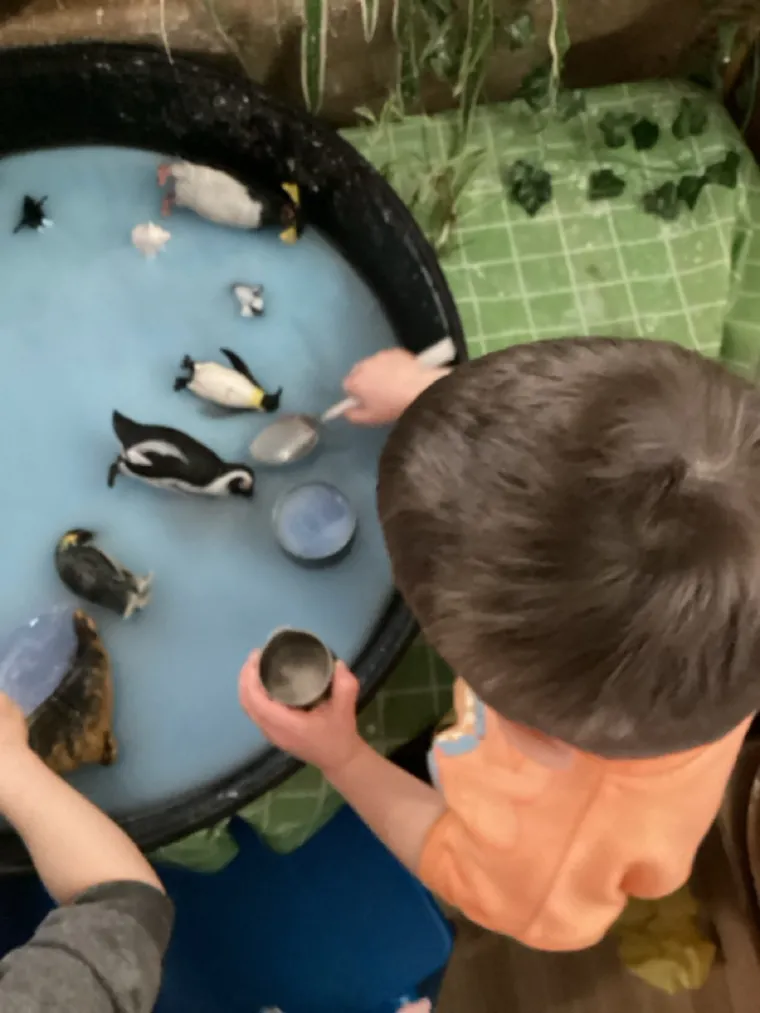
‘We’ve really supported the children to understand that water isn’t a continuous resource…when the water butt runs out, the play water for that day is finished.’ Storytelling was employed to support children's understanding of environmental concepts, particularly the concept of dirt. ‘We considered that sometimes there are negative associations with ‘dirt’ as being dirty, so we considered whether as a team we should call it soil, mud or something more supportive.’ Furthermore, conversations with adults were opened up regarding food origins and sustainable travel. Staff meetings have been scheduled to review and refine the action plans, ensuring ongoing implementation and the integration of sustainability into the curriculum.
Outcomes:
The training from the East of England Stronger Practice Hub has led to several positive outcomes, beginning with a notable increase in staff confidence and knowledge, demonstrated by their enhanced ability to discuss environmental sustainability with both children and adults. Children's engagement and understanding has also seen a marked improvement, evidenced by their heightened participation in nature-based learning and their more frequent involvement in discussions about environmental concepts. The practical implementation of sustainable practices within the setting was successfully documented, showcasing the effective integration of resource conservation and energy efficiency measures. Finally, observations from staff indicated that children were asking more questions about the environment and engaging in deeper, more meaningful conversations.
Link to EEF Evidence:
This case study aligns with several key principles highlighted in the EEF Evidence Store, particularly within the "Communication and Language" and "Effective Professional Development" sections, and within the early years evidence store.
- High-Quality Interactions: The training and implementation focused on fostering high-quality interactions between adults and children, promoting rich language development and deeper understanding of environmental concepts. The increased adult confidence to discuss food and travel is a good example of this.
- Rich Language Environments: By integrating environmental themes into daily activities and discussions, the setting created a rich language environment that supported children's vocabulary development and conceptual understanding. The use of stories to explain dirt, and the conversations around food sources are examples of this.
- Effective Professional Development: The training provided by the Stronger Practice Hub aligns with EEF's guidance on effective professional development, emphasising practical application, ongoing support, and collaboration. The ongoing review of action plans in staff meetings reinforced these principles.
- Nature based learning: The EEF supports outdoor learning, and the use of the forest and farm for learning supports this.
- Implementation of evidence based practice: The use of the Stronger Practice Hub’s training, and the creation of action plans based upon this training, shows the implementation of evidence based practice.
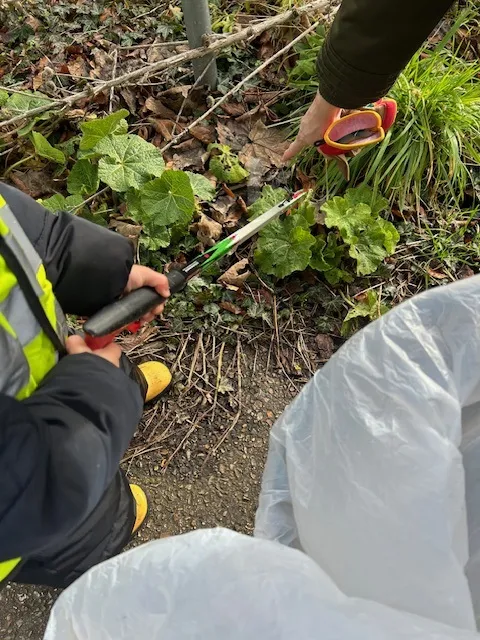
Conclusion
This case study demonstrates the positive impact of targeted professional development and evidence-informed practice on embedding environmental sustainability into early years education. By leveraging the resources and guidance provided by the East of England Stronger Practice Hub and aligning with the EEF Evidence Store, the setting successfully enhanced staff knowledge, promoted children's engagement with nature, and fostered sustainable practices. Ongoing evaluation and refinement of the action plans will ensure the continued success of these initiatives.
